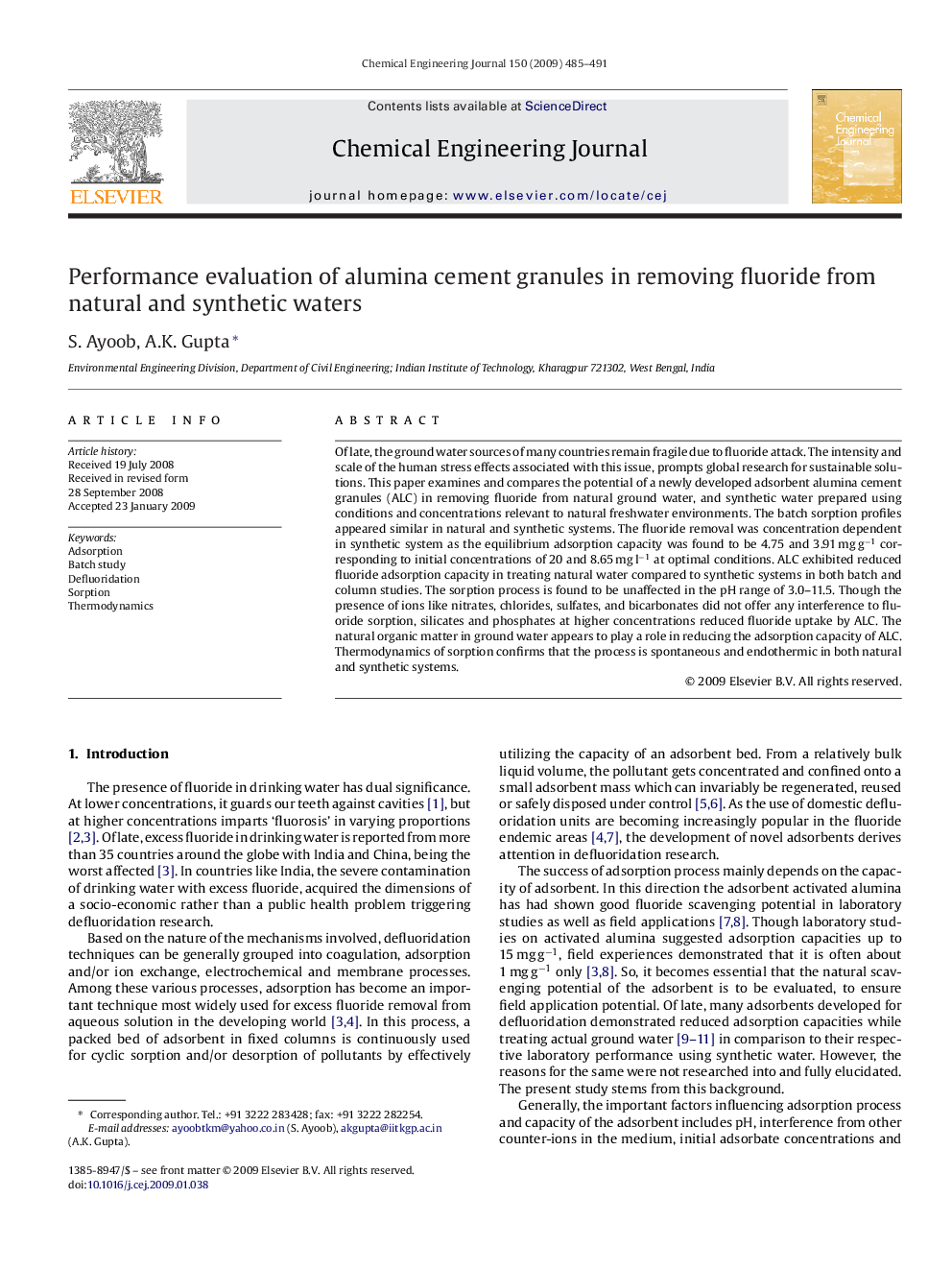| Article ID | Journal | Published Year | Pages | File Type |
|---|---|---|---|---|
| 152824 | Chemical Engineering Journal | 2009 | 7 Pages |
Of late, the ground water sources of many countries remain fragile due to fluoride attack. The intensity and scale of the human stress effects associated with this issue, prompts global research for sustainable solutions. This paper examines and compares the potential of a newly developed adsorbent alumina cement granules (ALC) in removing fluoride from natural ground water, and synthetic water prepared using conditions and concentrations relevant to natural freshwater environments. The batch sorption profiles appeared similar in natural and synthetic systems. The fluoride removal was concentration dependent in synthetic system as the equilibrium adsorption capacity was found to be 4.75 and 3.91 mg g−1 corresponding to initial concentrations of 20 and 8.65 mg l−1 at optimal conditions. ALC exhibited reduced fluoride adsorption capacity in treating natural water compared to synthetic systems in both batch and column studies. The sorption process is found to be unaffected in the pH range of 3.0–11.5. Though the presence of ions like nitrates, chlorides, sulfates, and bicarbonates did not offer any interference to fluoride sorption, silicates and phosphates at higher concentrations reduced fluoride uptake by ALC. The natural organic matter in ground water appears to play a role in reducing the adsorption capacity of ALC. Thermodynamics of sorption confirms that the process is spontaneous and endothermic in both natural and synthetic systems.
